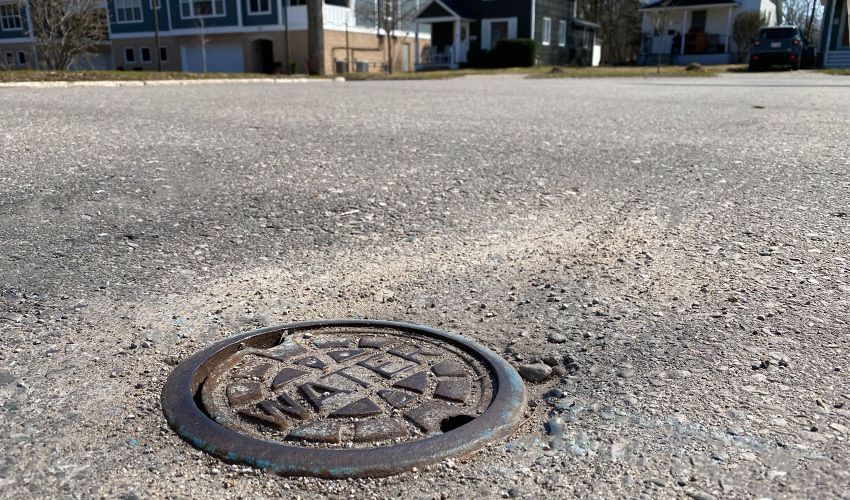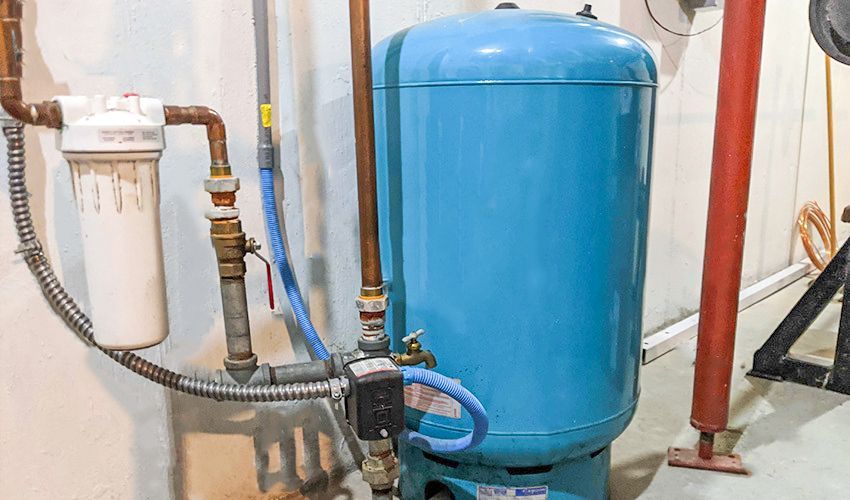Water Heater Maintenance Tips: Extend Your Water Heater's Lifespan
A water heater is a cornerstone of modern comfort, providing hot water for daily routines. However, like any appliance, it requires consistent care to ensure longevity and optimal efficiency. Ignoring water heater maintenance can lead to reduced lifespan, unexpected breakdowns, and increased energy consumption.
This guide offers essential water heater care tips to prevent these issues. By following these steps, you can significantly extend your water heater's lifespan, reduce the risk of costly repairs, and enjoy a consistent hot water supply. Let's explore how to maintain your water heater for maximum performance.
Understanding Your Water Heater
To maintain your water heater effectively, it's crucial to familiarize yourself with its specific characteristics. Understanding your water heater's type, age, and size is essential for tailoring proper care
Type of Water Heater
Water heaters can be categorized into electric, gas, or tankless models. Each type has unique operating mechanisms and maintenance requirements. Electric water heaters utilize electricity to heat water stored in a tank, while gas water heaters rely on gas combustion. Tankless water heaters provide hot water on demand, eliminating the need for a storage tank.
Water Heater Age
The age of your water heater significantly impacts its overall condition and potential lifespan. Most water heaters have an average lifespan of 8-12 years, but proper maintenance can extend this period. Checking the manufacturer's label or installation date can help determine your water heater's age. Older units may require more frequent inspections and potential replacements.
Water Heater Size
Your water heater's size, measured in gallons, influences its capacity and energy consumption. Larger households or those with high water demands may benefit from larger tanks. Understanding your water heater's size helps determine the appropriate maintenance schedule and prevent excessive energy usage.
By grasping these fundamental aspects, you can tailor your water heater care routine for optimal performance and longevity.
Essential Water Heater Maintenance Tips
Regular water heater maintenance is crucial for extending its lifespan and ensuring optimal performance. By following these essential tips, you can prevent costly repairs and enjoy a consistent hot water supply.
Regular Flushing
Sediment buildup is a common issue that can reduce water heater efficiency and shorten its lifespan. Regular flushing removes this sediment, restoring optimal performance. It's recommended to flush your water heater at least once a year or more frequently if you have hard water. To flush your water heater, turn off the power or gas supply, attach a hose to the drain valve, and slowly open the valve to release the sediment and water.
Inspecting the Anode Rod
The anode rod is a sacrificial component that helps prevent tank corrosion. Over time, the anode rod deteriorates, reducing its effectiveness. Regular inspection is essential to determine its condition. If the anode rod is significantly depleted, it should be replaced to protect your water heater from corrosion.
Checking for Leaks
Detecting and addressing leaks promptly is vital for preventing water damage and costly repairs. Regularly inspect your water heater for signs of leaks, including water droplets or puddles around the base. Check connections, pipes, and the pressure relief valve for any signs of leakage. If you notice any leaks, contact a professional plumber immediately.
Insulating the Water Heater
Improving your water heater's insulation can significantly enhance energy efficiency and reduce utility bills. Adding insulation blankets to the water heater tank helps retain heat, minimizing energy consumption. Additionally, insulating hot water pipes can prevent heat loss during water delivery.
Maintaining Water Temperature
Setting the water heater temperature correctly is essential for safety and energy efficiency. The recommended temperature is 120°F (49°C) to prevent scalding while minimizing energy consumption. Avoid excessively high temperatures, as they can increase the risk of scalding and shorten the water heater's lifespan.
By incorporating these maintenance practices into your routine, you can significantly extend your water heater's lifespan and ensure a reliable hot water supply.
Troubleshooting Common Water Heater Issues
Despite regular maintenance, water heater problems can arise. Understanding common issues and their potential causes can help you address problems efficiently.
No Hot Water
A lack of hot water can be frustrating. Several factors could cause this issue, including a tripped circuit breaker, a malfunctioning thermostat, or an insufficient gas supply. Check these components first. If the problem persists, sediment buildup may be hindering the heating element's performance. A thorough flushing can resolve this.
Water Heater Noises
Unusual noises from your water heater can indicate underlying issues. A rumbling or popping sound often suggests sediment buildup. Regular flushing can mitigate this problem. A high-pitched screeching noise might indicate a failing heating element or thermostat. In such cases, professional assistance is recommended.
Leaks
Water heater leaks can cause significant damage if left unattended. Check for leaks around the pipes, connections, and the base of the water heater. If you detect any leaks, turn off the water supply immediately and contact a plumber. Preventative measures, such as tightening connections and inspecting pipes regularly, can minimize the risk of leaks.
Sediment Buildup
As mentioned earlier, sediment buildup can reduce water heater efficiency and lead to various issues. Regular flushing is crucial to remove sediment and restore optimal performance. Additionally, installing a water softener can help reduce sediment accumulation.
By understanding these common problems and their potential solutions, you can effectively troubleshoot minor water heater issues. However, for complex problems, it's advisable to consult a professional plumber.
When to Call a Professional
While many maintenance tasks can be handled independently, certain situations necessitate professional expertise. Recognizing the signs that indicate professional help is crucial for maintaining your water heater's health.
Signs Indicating Professional Help
Several indicators signal the need for professional
water heater repair or replacement. These include persistent leaks, frequent breakdowns, a significant reduction in hot water supply, unusual noises, or visible signs of corrosion. Additionally, if you lack the necessary tools or expertise to address the issue, it's best to consult a professional plumber.
Benefits of Professional Maintenance
Regular
professional water heater maintenance
offers several advantages. Skilled technicians can conduct thorough inspections, identify potential issues, and perform necessary repairs or replacements. They possess the expertise to optimize your water heater's efficiency, extend its lifespan, and reduce the risk of unexpected breakdowns. Moreover, professional maintenance can help prevent costly repairs in the long run.
Importance of Regular Inspections
Scheduling regular water heater inspections is essential for proactive maintenance. Professionals can assess your water heater's condition, identify potential problems, and recommend preventive measures. Early detection of issues can help avoid major repairs and disruptions to your hot water supply.
By understanding when to seek professional assistance and the benefits of regular inspections, you can ensure your water heater operates efficiently and reliably.
Protect Your Water Heater Investment
Proper water heater maintenance is essential for ensuring its longevity, efficiency, and reliable performance. By following the tips outlined in this guide, you can significantly extend your water heater's lifespan and reduce the likelihood of costly repairs.
Remember to prioritize regular inspections, address issues promptly, and consider professional maintenance when necessary. By investing time and effort into water heater care, you'll enjoy a consistent hot water supply and optimize energy efficiency.
For professional
water heater repair or maintenance, trust
Brooks Plumbing. With a rich history dating back to 1956, we are your local experts in plumbing solutions. Our team of skilled plumbers is dedicated to providing prompt, reliable, and affordable service.
Contact Brooks Plumbing today to schedule an appointment.
Experience the Brooks Plumbing difference and enjoy peace of mind knowing your plumbing system is in expert hands.
Ready to work with Brooks Plumbing?
Let's connect! We’re here to help.
Send us a message and we’ll be in touch.
Or give us a call today at (214) 368-3838
Agency Contact Form
We will get back to you as soon as possible
Please try again later
More Marketing Tips, Tricks & Tools








© 2024 Brooks Plumbing. All rights reserved. Master # M-9837
All locations are individually owned and operated. Certain services are subject to state and local licensing and may not be available at all locations.






